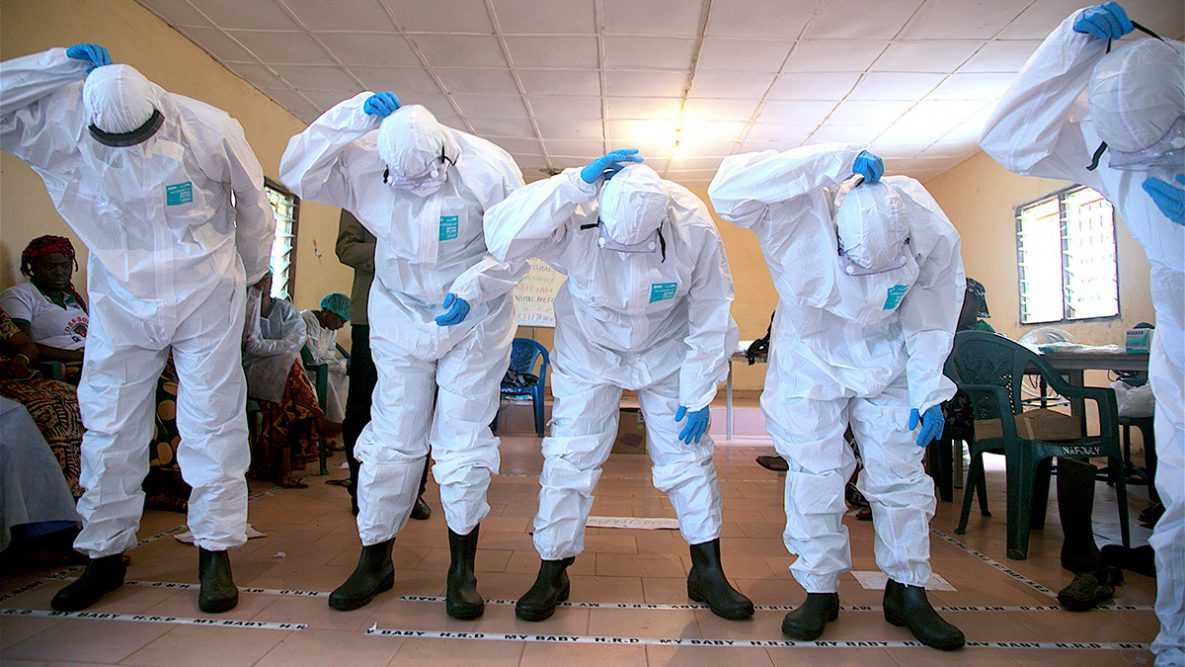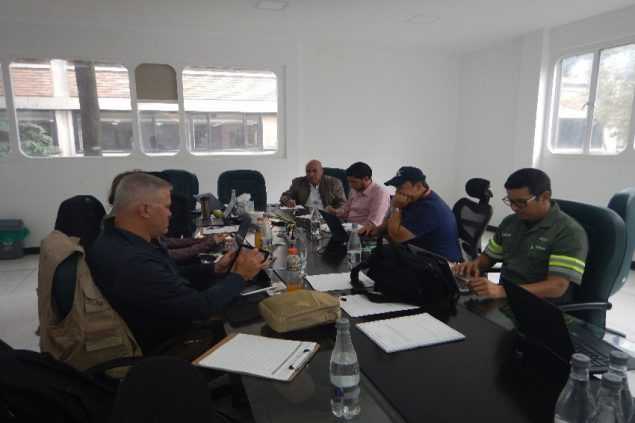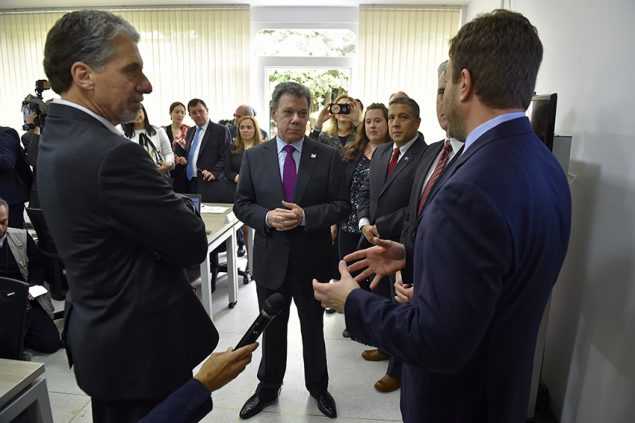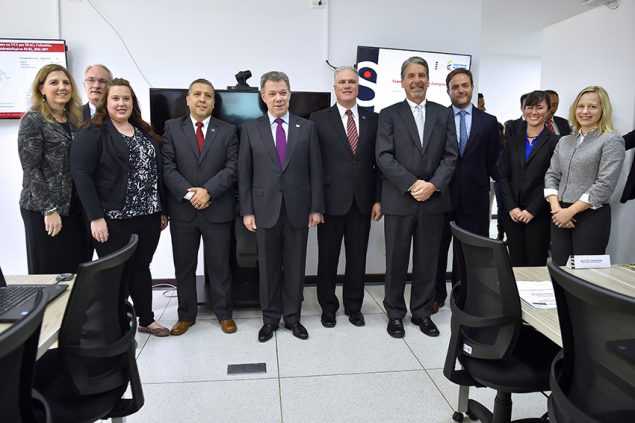Practice Makes Perfect (and Prepared)

Practice Makes Perfect (and Prepared)

CDC preparedness experts met with Instituto Nacional de Salud staff to carry out a full-scale exercise in preparation for the Pope’s September visit to Colombia
On January 26, 2017, Colombia’s National Institute of Health, or Instituto Nacional de Salud (INS), launched their new Public Health Emergency Operations Center (PHEOC) in Bogota. The successful launch of this PHEOC is the culmination of years of collaboration and planning between INS and CDC’s Emergency Response and Recovery Branch (ERRB) and National Public Health Institute (NPHI) program.
Across the globe, emergency operations centers (EOCs) are a cornerstone of emergency preparedness and response – a place where highly trained experts monitor information, prepare for potential public health events, and gather in the event of an emergency to exchange information and make decisions quickly. Colombia’s PHEOC is part of an Emergency Management System that will enable the country to respond efficiently and effectively to public health events of national and international concern.
In summer 2017, the country worked with CDC to put its new PHEOC to the test, simulating a real-life emergency to make sure its responders are ready. Being prepared to control infectious disease threats where they begin is a key responsibility of all countries – as required by the World Health Organization’s International Health Regulations (IHR) – and is vital to ensuring global health security.
WORKING TOGETHER TO BETTER PREPARE

Michael Gerber (R) talking with the US Ambassador to Colombia, Kevin Whitaker (L) and Colombian President Juan Manual Santos (C) about the launch of the INS Emergency Operations Center in January 2017.
Since 2012, ERRB’s Global Response Preparedness Team (GRPT) has worked with INS to help Colombia strengthen its emergency preparedness and response capabilities. In addition to working with CDC to enhance emergency management and strategic planning expertise, staff from INS also traveled to the United States to learn more about national, state, and local EOCs, including visits with the CDC EOC in Atlanta, the Georgia Public Health Department EOC, and the Henry County Emergency Management EOC in Georgia.
GRPT also assisted with the development of an Emergency Operations Plan and Standard Operating Procedures to support Colombia’s PHEOC. The U.S. Agency for International Development (USAID) has provided funding to the GRPT to continue providing technical assistance to INS.
As a complement to the systems and capacity-building development by GRPT, CDC’s NPHI program and the International Association of National Public Health Institutes (IANPHI) supported upgrading an existing INS space into the PHEOC to create a physical coordination hub for operations during emergency responses. Since mid-2014, the NPHI program has supported strengthening Colombia’s overall public health systems through improving laboratory capacity, enhancing surveillance systems and data use, preparing officials through risk communication skills development, and providing support for Zika detection and response.
PRACTICE, PRACTICE, PRACTICE

Jennifer Brooks (DEO), Dennis Jarvis (NPHI), Kimberly Hanson (GRPT), Luis Hernandez (GRPT), Juan Manuel Santos (President of Colombia), Mike Gerber (ERRB), Tasha Stehling-Ariza (GRRT), Shelly Bratton (NPHI).
CDC staff visited Bogota again in late summer 2017 to conduct exercises that would test the country’s preparedness plans. Exercises provide valuable lessons in how to better prepare before an emergency occurs. With a visit from Pope Francis expected in several cities across Colombia in September, exercising the PHEOC was an important step in preparing the country for the throngs of visitors.
The full-scale exercise took place from July 26-28, 2017 and had two components: activation of the PHEOC in Bogota and a field investigation in Cartagena to simulate a real-life emergency. The exercise required strong collaboration between the Cartagena Port Authority, local Rapid Response Teams, the local Field Epidemiology Training Program, and CDC’s Division of Global Health Protection. Lessons learned from the exercise were then put into action when INS activated their PHEOC during the pope’s September visit.
INS and CDC have a long history of collaboration, as well as a mutual understanding and commitment to promoting preparedness. Colombia’s dedication to public health preparedness sets an example for other countries who are strengthening their own systems to enhance global health security.
- Page last reviewed: September 27, 2017
- Page last updated: September 27, 2017
- Content source:
Global Health
Notice: Linking to a non-federal site does not constitute an endorsement by HHS, CDC or any of its employees of the sponsors or the information and products presented on the site.


 ShareCompartir
ShareCompartir